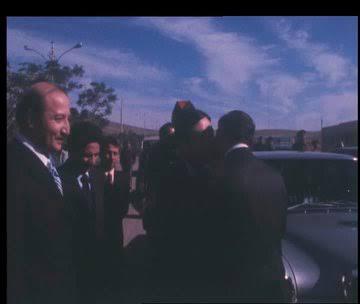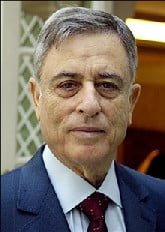He strongly criticized Nabil al-Araby’s statements in support of Bashar al-Assad.
Former Syrian Vice President Abdel Halim Khaddam expressed strong criticism of Nabil al-Araby’s statements, which supported Bashar al-Assad’s regime.
Khaddam warned about the negative phenomenon of numerous conferences held by the opposition. However, he emphasized the importance of focusing on the positive aspect of the situation, stating that these conferences reflect the vitality of Syrians’ movement for change.
As the head of the opposition National Salvation Front, Khaddam added that any conference should be evaluated based on the decisions made. If these decisions are in response to the youth revolution in Syria, it is considered a positive and moral support. However, if they are seen as an attempt at political maneuvering, both inside and outside Syria would reject the outcomes.
During an interview with American radio station Sawa, Khaddam described the concept of establishing a Syrian shadow government as impractical. He emphasized that no country in the world would be willing to host such a government aiming to overthrow another country’s regime. This reality is evident in international relations.
The shadow government has demonstrated its failure.
According to him, historical evidence shows that shadow governments have generally been unsuccessful, except in limited cases.
He further emphasized that when the regime starts to collapse, it becomes the responsibility of the opposition to establish a body that has a tangible presence within the country. This body should organize the transition process through conferences or by engaging with national entities to form a transitional government and clearly define its responsibilities.
Khaddam criticized the divisions among the Syrian opposition, referring to them as minor details despite having many shared slogans, such as the overthrow of the regime and the demand for a pluralistic civil state. He stated that any considerations outside the goal of overthrowing the regime are misguided. Syrians should set aside their political differences and focus solely on achieving change in Syria.
The former Syrian Vice President highlighted that individuals with ambitions or political programs should await the post-Bashar al-Assad regime period when elections will be held in Syria. At that time, they can present their programs to the people, who will have the opportunity to choose what aligns with their interests. However, he cautioned against pursuing personal interests and creating divisions, as it contradicts the principles of national unity.
As the head of the opposition National Salvation Front, Khaddam reiterated his call for international intervention in the Syrian crisis. He argued that the Syrian people are enduring death, bloodshed, and destruction without proper assistance. Therefore, it is crucial and imperative for the international community to support the Syrian people during this process of change and the transfer of power from one democratic system to another national democratic system.
Nabil El-Araby solely focused on Bashar
, according to Khaddam, who launched a strong attack on the Egyptian Secretary General of the League of Arab States.
Khaddam criticized Nabil El-Araby, stating that as an ambassador-ranked employee, he should not provide cover for any Arab regime. He accused El-Araby of disregarding the plight of Muslim women and criticized his recent visit to Damascus. Khaddam argued that the visit demonstrated El-Araby’s ignorance of the televised atrocities, the scale of destruction, and the humiliation endured by Syria. Additionally, Khaddam accused El-Araby of neglecting the number of casualties and detainees. The former Syrian Vice President noted that El-Araby’s focus seemed to be solely on Bashar Al-Assad and highlighted that his statements had a negative impact in Syria, among Syrians, and in Arab public opinion.
Khaddam urged Nabil El-Araby to follow in the footsteps of Mahmoud Riad and Amr Moussa, who remained committed to national, moral, and the Charter of the Arab League principles. He emphasized that while the crimes in Syria have shocked the conscience of the world, El-Araby seemed unaffected. Khaddam reminded the Secretary-General of the League of Arab States of the positions taken by the Secretary-General of the United Nations, Ban Ki-moon, which surprised them.
Mr. Larbi (Khaddam) called on the international community not to interfere in Syria’s internal affairs. He mentioned that President Bashar Al-Assad, from the very first week of his rule, demonstrated a refusal to heed anyone’s advice, which has led the country to its current crisis. Khaddam expressed hope for an imminent resolution to the crisis.
(Note: Some parts of the original text were unclear or had inconsistent information. I made revisions based on the provided content to ensure clarity and coherence.)


